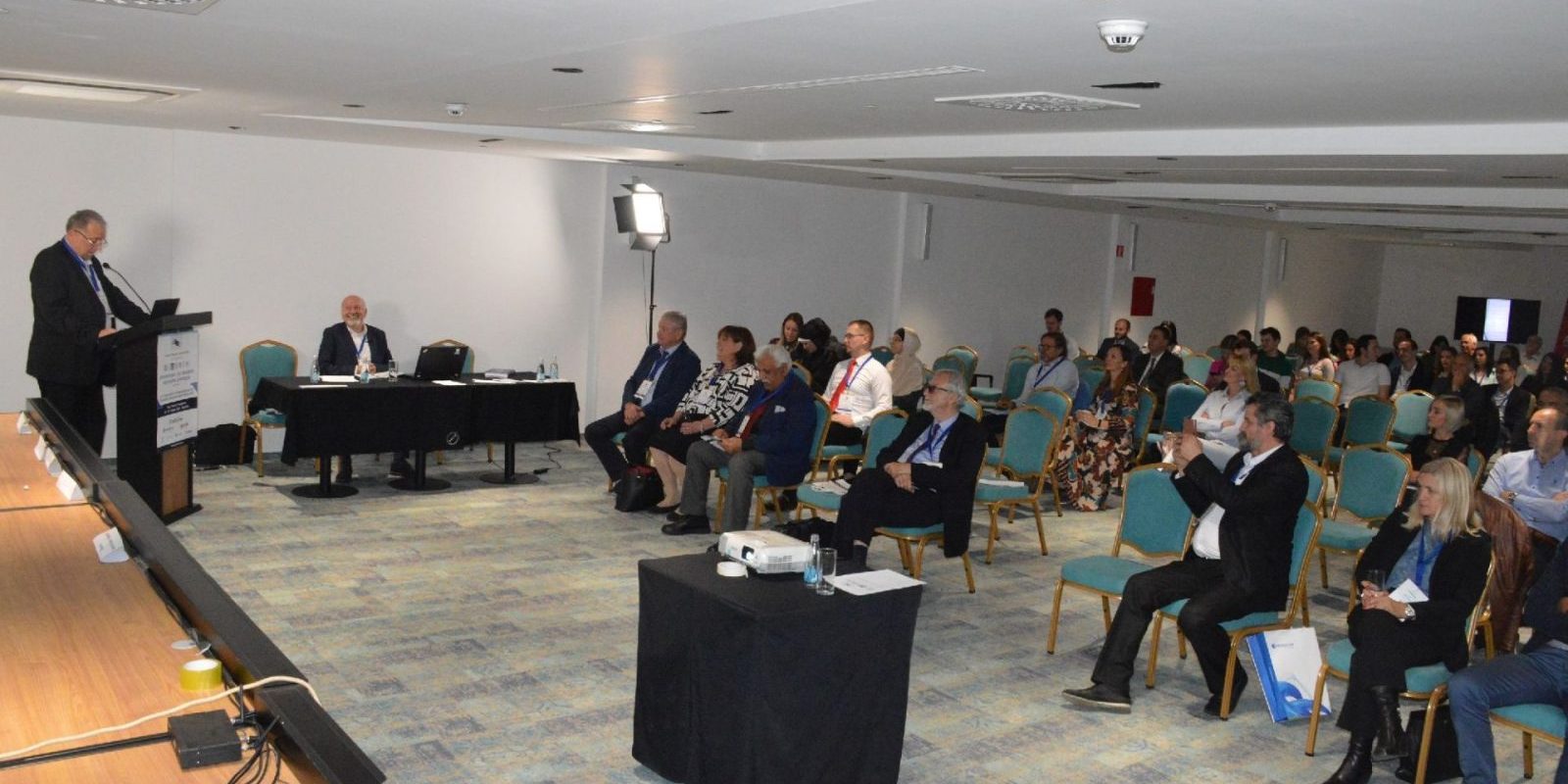The International 30th Danubian Psychiatric Symposium organized by the Danubian Psychiatric Association in cooperation with International Academy of Science and Arts in Bosnia and
Herzegovina – Department for Medical Sciences, the University Clinical Center Tuzla – Clinic of Psychiatry, Faculty of Medicine, the University of Tuzla, Psychiatric Association of Tuzla Canton (PATC), Psychiatric Association of Bosnia and Herzegovina (PABH), Croatian Society for Creative Psychopharmacotherapy and Biological Psychiatry of Croatian Medical Association (CMA) was held in Tuzla, 28- 30 October, 2022 at the Hotel Salis.
Prof. Dr. Izet Pajević, president of the organizing committee of the Symposium said that the aim of the organizers is to start the process of adoption and implementation of a new classification of psychiatric diseases by clinicians, researchers, and regulatory authorities, and to improve the diagnostic process but also guidelines on the pharmacological treatment of mental disorders.
During the scientific program of the Symposium the invited speakers from Bosnia and Herzegovina,Croatia,Switzerland, Germany, the United Kingdom, Turkiye, Austria, Hungary and Spain presented development of specific criteria for international classification of mental disorders and changes to the structure of the ICD classification of mental disorders. They also discussed topics related to professional development and training programs.
Scientific program of the Symposium included the promotion of the book entitled “Introduction to the classification of psychiatric disorders ICD- 11” by a group of editors (Izet Pajević, Esmina Avdibegović i Ahmed Pajević). The promoters of the book were academicians Prof. Dr. Osman Sinanović and Prof. Dr. Miro Jakovljević.
One of the editors of the book Prof. Dr. Izet Pajević, said that the World Health Organization revises the International Classification of Diseases every 20 to 30 years, and after the new classification ICD-11 came into effect at the beginning of this year, it was decided that the part that refers to psychiatry need be translated into Bosnian language for easier and wider use.
In his review, academician Prof. Dr. Osman Sinanović said that it is very important that the book “Introduction to the classification of psychiatric disorders ICD- 11” adopted by the Work Health Assembly will be the part of the university reading and studying literature, which will help students to learn adequate definitions and basic explanations for psychiatric disorders.
On the occasion the second reviewer of the book Academician Prof. Dr. Miro Jakovljević from Zagreb said that with each new revision of the International Classification of Diseases, efforts are being made to increase its usefulness and reliability, validity and consistency in order to improve clinical practice, improve the effectiveness of treatment and the reliability of clinical research on mental disorders. “The publication of the 11th revision of the International Classification of Mental Disorders (ICD-11) in the Bosnian language is an important contribution to raising the professional and scientific level of psychiatry, not only in Bosnia and Herzegovina, but also in the region. The special value of this book is that it explains the differences between the previous ICD-10 and the current ICD-11 classification of mental disorders, and thus enables easier navigation, better understanding and more successful application of ICD-11 in everyday work”, stated in the review Academician Jakovljević.
Academician Norman Sartorius from Geneva in his review of the book said that the International Classification of Diseases provides the cooperation of all those who participate in health promotion, disease prevention and treatment at all levels – from basic medical care in the field to cooperation between countries. “The publication of the classification of diseases and their definitions in the Bosnian language is the result of many years of work and is not only a significant contribution to the professional audience, but also an important support for practical work and efforts to provide full health and social assistance to people suffering from mental illnesses and those who care for them”, writes academician Sartorius in his review.







